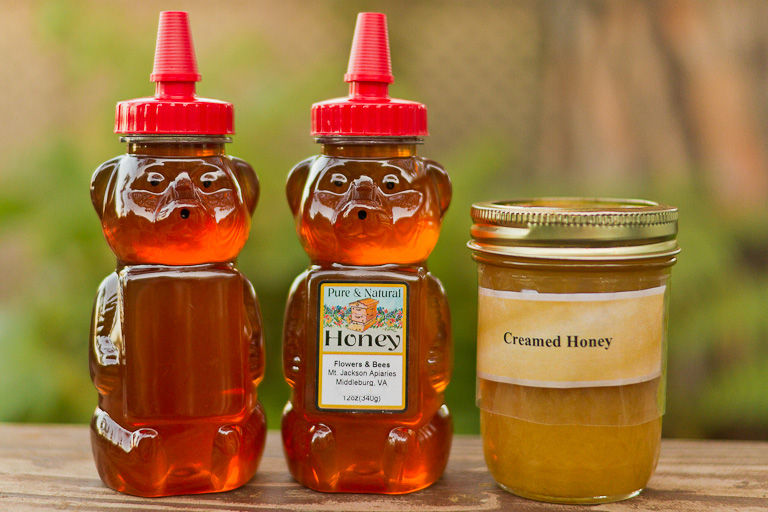Here's a few more pictures of them extracting the honey from the honeycomb and excerpts from their adventures.
We pulled the frames Monday afternoon.
In the pics, we put the pulled frames in the trunk of the car and closed it after each frame was put in to keep bees from finding it while we were working it. We had to use both hands to carry the heavier honey-laden frames.
We rented the equipment from the Loudoun Beekeepers' Assoc. to extract the honey ($5 for a day-what a deal! The extractor itself costs a few hundred dollars). We started pulling the frames around 7p.m. and by 2 a.m. we had finished all the extraction.
We carried all the frames to the kitchen and had the extractor ready. After we uncapped the white capped cells on each frame - each side, 6 frames were inserted into the slots of the extractor. We manually turned the contraption, first clockwise, then counter, then reinsert the frames upside down and do the clockwise and counterclockwise turning again - a total of 24 minutes of turning for each set of 6 frames.
We had a little over 62 pounds of honey - enough to fill 75 med. size honey bears, plus 9 other miscellaneous containers. The big, glass quart of honey will be used to try and make creamed honey.
We ended up with 3 batches - the capped honey produces the dark colored, bold flavored honey. The frames that weren't totally capped(mostly from the white hive) produced the light, buttery flavor. Then all the honey that drained into the blue pot while we decapped frames made a mixture. Dad had the honey tested by a refractometer the Beekeeper president had and the moisture content was perfect - Grade A, according to the refractometer. Apparently, moisture content is very important or the honey will ferment.

















No comments:
Post a Comment